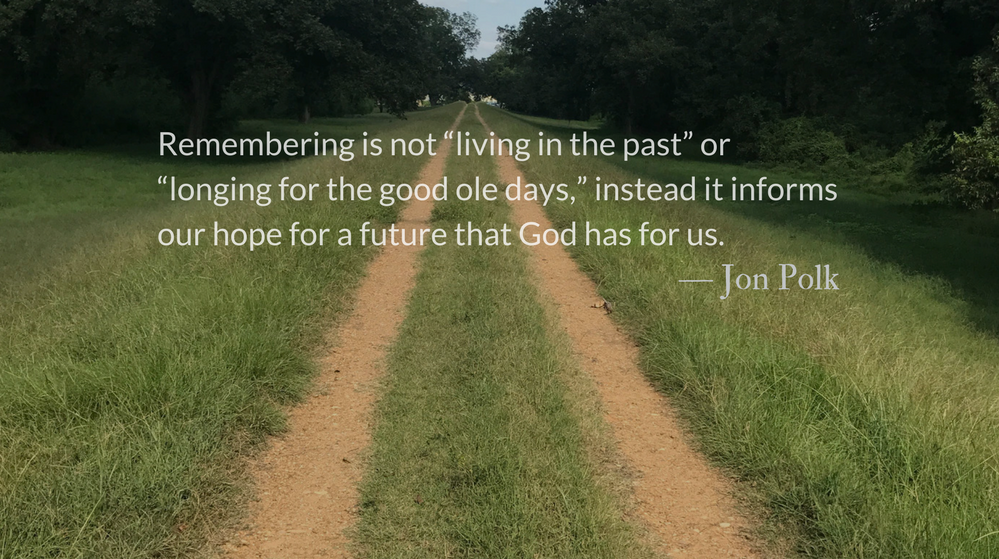Selected by reader, Kim in Vancouver, BC
When I grow tired (or heaven forbid, bored) of praying, I realize it’s because I see prayer as my Christian “duty” or “obligation” (usually involving a checklist of requests). I pause; take a moment to switch gears, and remember that Jesus views prayer as relationship. Then somehow, there is a magical transformation: praying is now a delight.
Originally posted on July 9, 2018 with readings from Jeremiah 5 and Matthew 19.
Then people brought little children to Jesus for him to place his hands on them and pray for them. But the disciples rebuked them.
Jesus said, “Let the little children come to me, and do not hinder them, for the kingdom of heaven belongs to such as these.” — Matthew 19.13-14
Reflection: Prayer as Relationship :: Readers’ Choice
By John Tillman
Many have faithfully lived out Christ’s command to let the little children come to him. But perhaps no one in history has lived it out affecting as many children as Fred Rogers.
In her book, The Simple Faith of Mister Rogers, Amy Hollingsworth gives an up-close look at the foundational Christian faith that made Mister Rogers’ Neighborhood a sacrament carried on secular airwaves.
The show had an intangible quality that captivated children and defied expectations. In the recently released documentary, Won’t You Be My Neighbor, one of the show’s producers, Margy Whitmire, said, “If you take all of the elements that make good television, and do the exact opposite, you have Mister Rogers’ Neighborhood.”
One possible reason for the show’s intangible and unlikely success is the simple spiritual discipline of its founder. According to Amy Hollingsworth:
Everything Fred Rogers did was a prelude to—or an outcome of—prayer….the essence of prayer is relationship, and Fred understood that.
One of the greatest things Mister Rogers may have modeled for children about God, is that he listens to and accepts their concerns, their emotions, and them as their true selves. Hollingsworth relates his answer to a child about not getting what she prayed for.
“Now, you know prayer is asking for something, and sometimes you get a yes answer and sometimes you get a no answer,” he carefully explained. “And just like anything else you might get angry when you get a no answer. But God respects your feelings, and God can take your anger as well as your happiness. So whatever you have to offer God through prayer—it seems to me—is a great gift. Because the thing God wants most of all is a relationship with you, yeah, even as a child—especially as a child. Look how Jesus loved the children who came around Him,” he told her.
Prayer was the purpose of the children coming to Jesus. Jesus didn’t merely greet the children. When the Bible says he “placed his hands on them” it isn’t referring to casual pat on the back, but a purposeful, prayerful blessing. That kind of welcoming and blessing is something we can receive from God, and give to others.
As we pray, about personal problems or about weighty national issues, we would do well to keep in mind the simple teaching of Mister Rogers, that also is the teaching of Jesus—prayer is about relationship.
Prayer: The Request for Presence
Let me hear of your loving-kindness in the morning, for I put my trust in you; show me the road that I must walk, for I lift up my soul to you. — Psalm 143.8
– Prayer from The Divine Hours: Prayers for Springtime by Phyllis Tickle.
Prayers from The Divine Hours available online and in print.
Today’s Readings
Jeremiah 35 (Listen – 3:43)
Psalm 7-8 (Listen – 2:58)
Additional Reading
Read More about Prayer as Vocation :: Readers’ Choice
Prayer that connects vocation, God’s presence, and his mission is how we live all of life in this world to the glory of God and in love for our neighbor. — Steve
Read More about Prayer Beyond Petitions
It is more important that we know God through prayer than petition him. God answers Hezekiah’s unasked prayer through relationship.
Readers’ Choice
We still have room for you to suggest your favorite posts of the year. Submit a Readers Choice post.
Tell us about a post and what it meant to you.
Support our Work
Over 4,000 people every week read an email devotional from The Park Forum. Support our work with a monthly or a one time donation.











